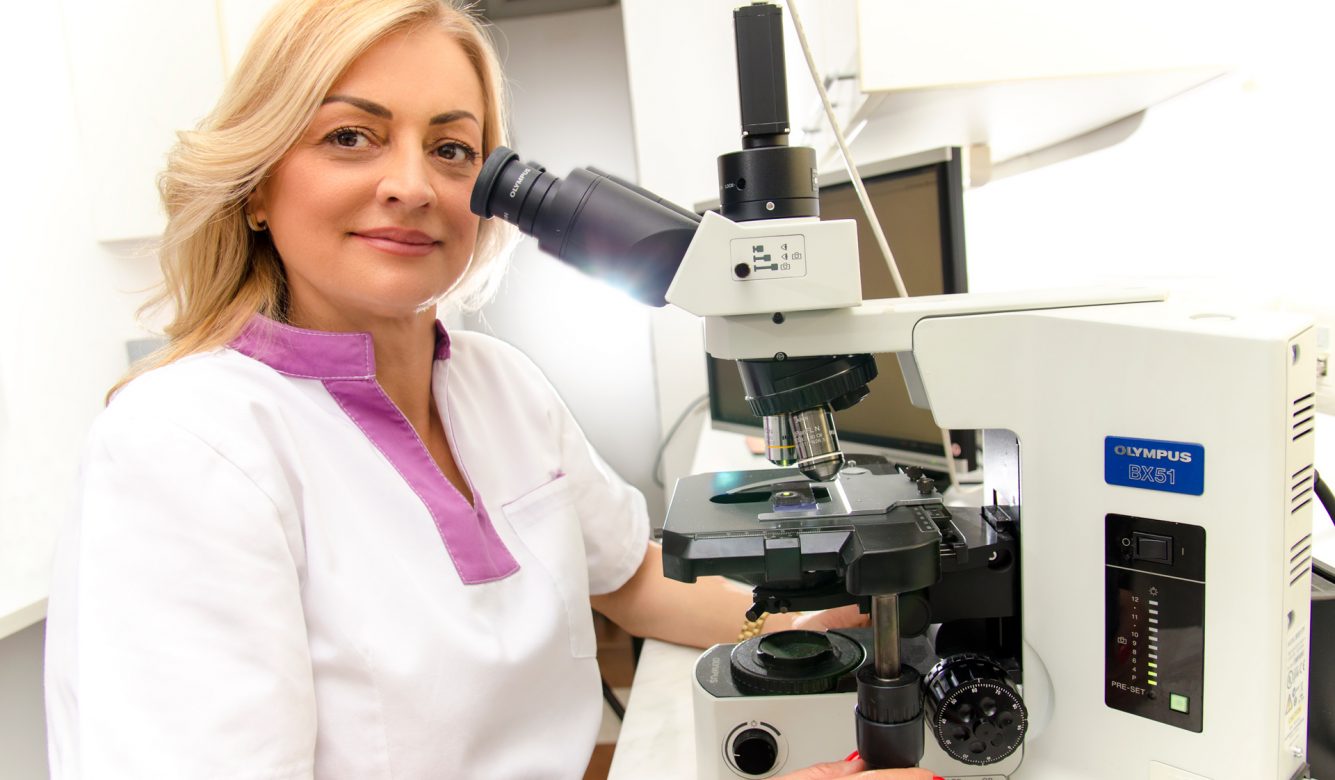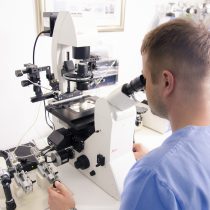Research shows that more than 3,000 pregnancies end in miscarriage every year in Serbia. This is a great stress for couples and almost all women wonder why that happened and if it is their fault. Many fear that this may happen again. This problem is not given enough attention, and asking necessary questions actually takes us back to the importance of genetic testing.

– When we talk of spontaneous abortions, we have spontaneous termination of pregnancy to 22nd week in mind. More than 80% miscarriages happen in the first three months of pregnancy. A spontaneous abortion is a process of natural selection, which eliminates about 90% of cytogenetic and morphologic damaged fetuses, because the fetus with a genetic malformation is incompatible with life and this leads to miscarriage, Vesna Manasijević, a specialist in medical genetics at the specialised gynaecological hospital “Genesis”, says.
In order to prevent a miscarriage or treat it, the cause should be determined first. Naturally, each couple is unique, and consequently tests should be adapted to them and cannot be the same for all. The most important thing is that patients are well informed about all the possibilities and be shown what is best for them, whereas, they themselves make the decision about the further course of the treatment.
Manasijević believes that more than half of miscarriages are caused by an anomaly in the chromosomes in the embryo or fetus. In addition to that, miscarriages can be caused by other factors.
– Chromosomal and genetic abnormality, infection, exposure to high levels of toxins and radiation, hormonal problems, abnormalities of the uterus, lifestyle (smoking, alcohol consumption, use of illegal drugs), certain diseases and certain medications may also contribute.
In the late thirties and the forties, the risks are higher. The patients who are 35 or older should be subject to scrutiny after two consecutive miscarriages. In the general population, 0.2% of the people have chromosomal abnormalities, whereas, when it comes to the couples who have experienced repeated miscarriages, the percentage is 4%.

What does genetic testing reveal in case of a miscarriage?
– In order to know whether a genetic factor is the major cause of the miscarriage, it is recommended to do the karyotype of both parents first, because chromosomes contain all genetic material. The normal female karyotype is 46, XX, and normal male karyotype is 46, XY. This analysis is basic and it provides important information whether there is something wrong with chromosomes when it comes to their number and structure at the cytogenetic level.
Changes in chromosome number, so called numerical aberrations, cause syndromes, the most common are: Down, Edwards and Patau, Klinefelter and Turner syndrome. In addition to numerical aberrations, there are structural aberrations too, and the most common are: translocations, inversions, deletions, ring chromosomes, Manasijević explained.
If the karyotype is normal, but the problem still exists, further genetic diagnosis is possible, and it includes genetic testing. These are revolutionary tests that specialised gynaecological hospital “Genesis”, in cooperation with the European most prestigious genetic laboratory “Igenomix” from Spain, introduced first in Southeast Europe. These safe, fast and reliable tests, carried out by a highly qualified team of doctors working in hospital Genesis, provide the best possible guidance to couples in reaching their goal, which is the successful outcome of the pregnancy and the birth of healthy children.
These include: Y chromosome microdeletions, then, the most advanced test for sperm analysis for the presence of chromosomal anomalies or SAT test. Compatibility genetic test CGT test is of great importance too, and the parents do this test before pregnancy to determine whether there are any “errors” in the genes and whether this will be passed on and affect their descendants.
In certain cases, it is desirable to do the genetic testing of the embryo or preimplantation diagnosis (PGD) which examines embryos that are at risk of developing a serious genetic disorder or preimplantation screening (PGS) which identifies healthy embryo for purposes of IVF treatment, Manasijević concludes.
For further information on the work of our genetic counselling centre, tests which are available, time when you can make an appointment, call the phone numbers of the hospital: +381 21549444, +381 21549777, +381 60549444 1.






